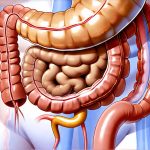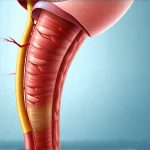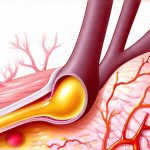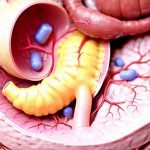Digestive health is often something we take for granted until it’s disrupted. A healthy digestive system efficiently breaks down food, absorbs nutrients, and eliminates waste, allowing our bodies to function optimally. However, many individuals experience occasional digestive discomfort – bloating, gas, or heartburn – which are usually temporary and resolved with simple lifestyle adjustments. But when these symptoms become persistent, severe, or accompanied by other concerning signs, they could indicate a more serious underlying digestive condition that warrants medical attention.
Understanding the nuances between normal digestive variations and potential red flags is crucial for proactive health management. This article aims to provide information about recognizing the signs of potentially serious digestive conditions, emphasizing the importance of seeking professional evaluation when concerns arise. It’s designed to empower you with knowledge, not to self-diagnose, but rather to understand when it’s time to consult a healthcare provider.
Understanding Digestive Discomfort
Occasional digestive upset is common and often linked to diet, stress, or minor infections. However, persistent or worsening symptoms should never be ignored. Recognizing the difference between temporary discomfort and something more serious can prevent delays in diagnosis and treatment, ultimately improving your overall health and well-being. Paying attention to changes in your bowel habits, abdominal pain characteristics, and associated symptoms is key.
When to Seek Medical Attention
While minor digestive issues usually resolve on their own, certain signs indicate a need for medical evaluation. These include severe or persistent abdominal pain, unexplained weight loss, blood in the stool, significant changes in bowel habits that last more than a few weeks, and difficulty swallowing. It’s also important to consult a doctor if you experience chronic heartburn despite over-the-counter remedies, persistent nausea or vomiting, or feeling full quickly even after eating small amounts of food.
Recognizing Changes in Bowel Habits
Significant alterations in your typical bowel patterns can be an early indicator of digestive problems. This includes changes in frequency – going to the bathroom much more or less often than usual – and consistency. Diarrhea lasting longer than a few days, or constipation that persists despite dietary adjustments and increased fluid intake, should prompt a medical assessment. Similarly, noticing blood in your stool (which can appear bright red or dark and tarry) requires immediate attention, as it could signal bleeding in the digestive tract.
Identifying Types of Abdominal Pain
The character of abdominal pain can provide valuable clues about its source. Sharp, localized pain might suggest a different issue than dull, cramping pain that spreads across the abdomen. Pain that is constant and doesn’t respond to typical remedies like over-the-counter pain relievers or changes in diet should be evaluated by a healthcare professional. Also, pay attention to whether the pain occurs after eating certain foods, during specific activities, or at particular times of day, as this information can help with diagnosis.
Understanding Associated Symptoms
Digestive conditions often present with symptoms beyond just bowel changes and abdominal pain. Unexplained weight loss is a concerning sign that requires investigation, as it could indicate malabsorption issues or more serious underlying health problems. Fatigue, even after adequate rest, can also be linked to digestive disorders, particularly those affecting nutrient absorption. Other associated symptoms include persistent nausea, vomiting, heartburn that doesn’t improve with medication, and difficulty swallowing (dysphagia). These accompanying symptoms should raise awareness and prompt a consultation with a doctor.
It is important to remember this information is for general knowledge and does not substitute professional medical advice. If you are experiencing any concerning digestive symptoms, please consult with a qualified healthcare provider for proper diagnosis and treatment. Self-treating or delaying medical attention can potentially worsen your condition. Early detection and appropriate management are crucial for maintaining good digestive health and overall well-being. Focusing on a balanced diet, staying hydrated, managing stress, and regular exercise can contribute to a healthy digestive system but cannot replace the expertise of a medical professional when serious symptoms arise.


















